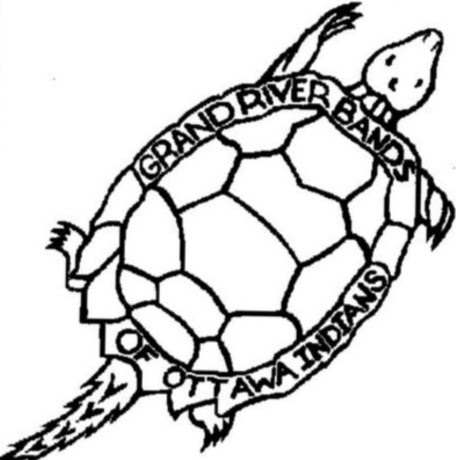
- Details
- By Laina G. Stebbins, Michigan Advance
A state-recognized Anishinaabek tribe in West Michigan says it has been “poring over historic documentation” in the last several months to make a stronger case to the federal government for recognition.
This article was originally published in Michigan Advance.
The Grand River Bands of Ottawa Indians (GRB) has been striving for 30 years to become Michigan’s 13th federally recognized sovereign tribal nation. In February, after a decade of being on the “active consideration” list, the tribe faced an initial rejection from the U.S. Department of Interior.
The ruling issued by the department allowed the tribe six months to provide additional documentation that would contest the finding.
“The Grand River Bands of Ottawa Indians continues to work with the U.S. Department of Interior to provide additional information on our petition for federal recognition,” GRB Chairman Ron Yob said on Friday.
“The U.S. Department of the Interior has continuously reached out to support our efforts and we have been compiling documentation that shows our long history as a distinct political community.”
The GRB, which have enlisted the support of professional historians and other experts, have also formally asked for a technical assistance meeting with the department to discuss the preliminary findings.
The tribe originally encompassed 19 Ottawa bands and now has about 600 enrolled members. It is based along waterways including the Grand River in present-day West Michigan, and most of its tribal citizens reside in Kent, Oceana and Muskegon counties.
The state of Michigan has recognized the GRB as a historic Native American tribe since 1996. The bands have agreements with the federal government dating back to 1795.
In the department’s preliminary finding in February, officials had concluded that the tribe failed to provide evidence of a distinct community since one-third of the tribe’s current membership are enrolled in another federally recognized tribe, while other enrolled members were found to be deceased.
The GRB lacked documentation proving that a “predominant portion of the petitioning group comprises a distinct community and has existed as a community from historical times until the present,’ the department’s notice read.
Failing to meet just one of seven criteria put forth by the department results in a determination that the group is “not an Indian tribe within the meaning of Federal law.”
But Yob said that with additional documentation, he and other tribal members “remain confident we will ultimately achieve the long overdue federal recognition for our tribal members and be able to provide long-awaited justice to our members.”
State recognition provides certain benefits to tribes, albeit in a limited capacity. Federal recognition comes with a much wider swath of services, funds and resources, and are acknowledged as sovereign nations within states.
The 12 tribes in Michigan currently recognized by the federal government are the Bay Mills Indian Community (BMIC), Grand Traverse Bay of Ottawa and Chippewa Indians, Hannahville Indian Community, Keweenaw Bay Indian Community, Lac Vieux Desert Band of Lake Superior Chippewa Indians, Little River Band of Ottawa Indians, Little Traverse Bay Bands of Odawa Indians, Match-e-be-nash-she-wish Band of Pottawatomi Indians (Gun Lake Tribe), Nottawaseppi Huron Band of Potawatomi Indians, Pokagon Band of Potawatomi Indians, Saginaw Chippewa Indian Tribe of Michigan and Sault Ste. Marie Tribe of Chippewa Indians.
The most recent of these tribes to gain federal recognition was the Gun Lake Tribe in 1999.
Other state-recognized tribes that continue to seek federal recognition include: the Burt Lake Band of Ottawa and Chippewa Indians, also known as the Cheboiganing Band; the Mackinac Bands of Chippewa and Ottawa Indians; and the Swan Creek Black River Confederated Ojibwa Tribes of Michigan.
Help us defend tribal sovereignty.
At Native News Online, our mission is rooted in telling the stories that strengthen sovereignty and uplift Indigenous voices — not just at year’s end, but every single day.
Because of your generosity last year, we were able to keep our reporters on the ground in tribal communities, at national gatherings and in the halls of Congress — covering the issues that matter most to Indian Country: sovereignty, culture, education, health and economic opportunity.
That support sustained us through a tough year in 2025. Now, as we look to the year ahead, we need your help right now to ensure warrior journalism remains strong — reporting that defends tribal sovereignty, amplifies Native truth, and holds power accountable.
 The stakes couldn't be higher. Your support keeps Native voices heard, Native stories told and Native sovereignty defended.
The stakes couldn't be higher. Your support keeps Native voices heard, Native stories told and Native sovereignty defended.
Stand with Warrior Journalism today.
Levi Rickert (Potawatomi), Editor & Publisher
